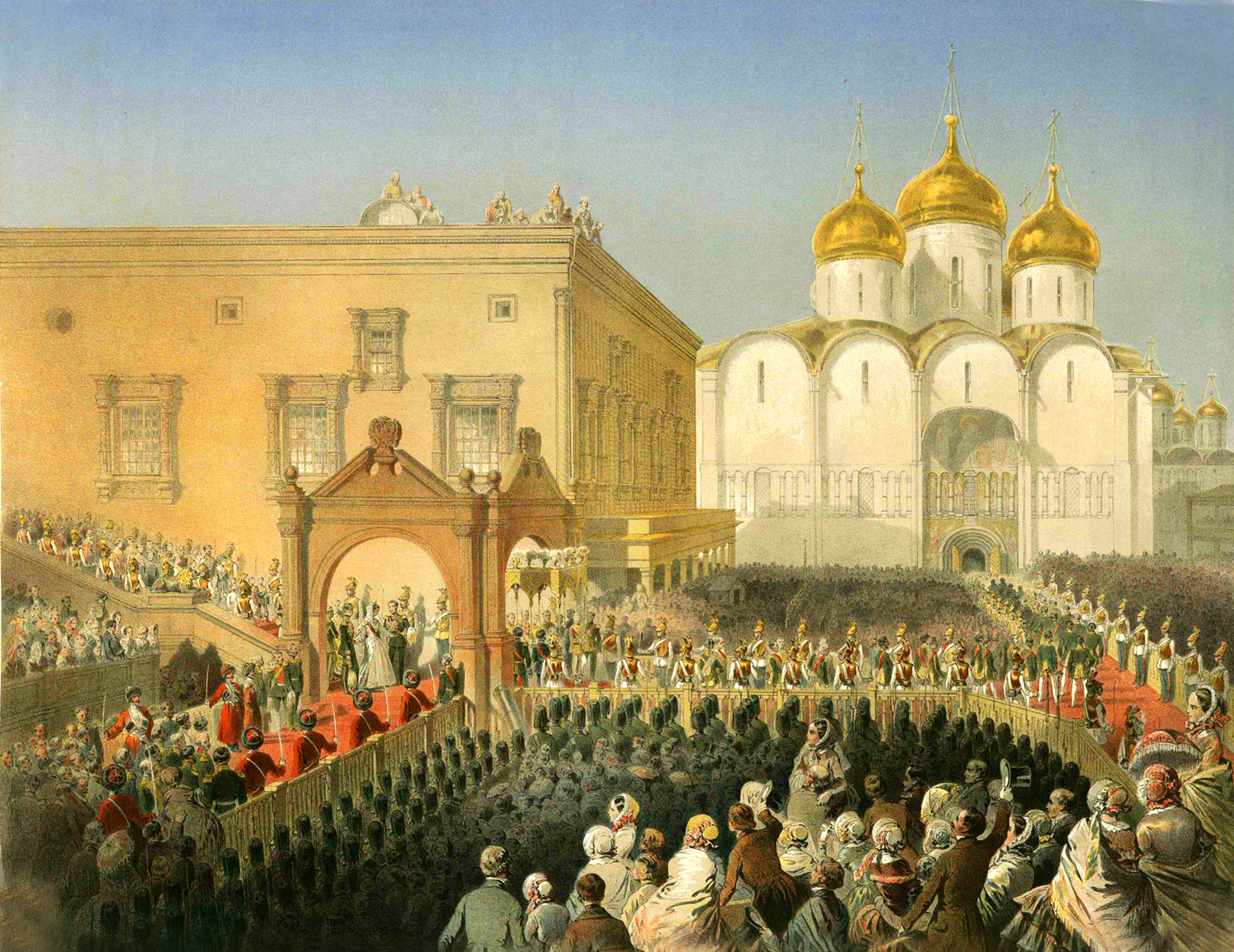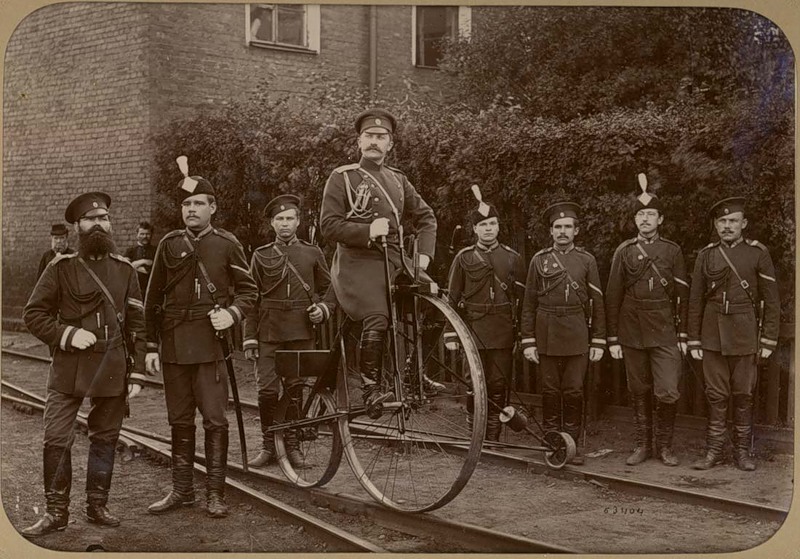|
Ministry Of Internal Affairs (Russia)
The Ministry of Internal Affairs of the Russian Federation (MVD; , ''Ministerstvo vnutrennikh del'') is the interior ministry of Russia. The MVD is responsible for law enforcement in Russia through its agencies the Police of Russia, Migration Affairs, Drugs Control, Traffic Safety, the Centre for Combating Extremism, and the Investigative Department. The MVD is headquartered in Zhitnaya Street 16 in Yakimanka, Moscow. Vladimir Kolokoltsev has been the Minister of Internal Affairs since 2012. History Russian Empire (1802–1917) The first interior ministry (MVD) in Russia was created by Tsar Alexander I on 28 March 1802. The MVD was one of the most powerful governmental bodies of the Empire, responsible for the police forces and Internal Guards, and the supervision of gubernial administrations. Its initial responsibilities also included prisons, firefighting, state enterprises, the state postal system, state property, construction, roads, medicine, clergy, natural re ... [...More Info...] [...Related Items...] OR: [Wikipedia] [Google] [Baidu] |
Moscow
Moscow is the Capital city, capital and List of cities and towns in Russia by population, largest city of Russia, standing on the Moskva (river), Moskva River in Central Russia. It has a population estimated at over 13 million residents within the city limits, over 19.1 million residents in the urban area, and over 21.5 million residents in Moscow metropolitan area, its metropolitan area. The city covers an area of , while the urban area covers , and the metropolitan area covers over . Moscow is among the world's List of largest cities, largest cities, being the List of European cities by population within city limits, most populous city entirely in Europe, the largest List of urban areas in Europe, urban and List of metropolitan areas in Europe, metropolitan area in Europe, and the largest city by land area on the European continent. First documented in 1147, Moscow became the capital of the Grand Principality of Moscow, which led the unification of the Russian lan ... [...More Info...] [...Related Items...] OR: [Wikipedia] [Google] [Baidu] |
Law Enforcement
Law enforcement is the activity of some members of the government or other social institutions who act in an organized manner to enforce the law by investigating, deterring, rehabilitating, or punishing people who violate the rules and norms governing that society. The term encompasses police, courts and corrections. These three components of the criminal justice system may operate independently of each other or collectively through the use of record sharing and cooperation. Throughout the world, law enforcement are also associated with protecting the public, life, property, and keeping the peace in society. The concept of law enforcement dates back to ancient times, and forms of law enforcement and police have existed in various forms across many human societies. Modern state legal codes use the term law enforcement officer or peace officer to include every person vested by the legislating state with police power or authority; traditionally, anyone sworn or badged who can arrest ... [...More Info...] [...Related Items...] OR: [Wikipedia] [Google] [Baidu] |
Doorman (profession)
A doorman (or doorwoman/doorperson), also called a porter in British English, is a person hired to provide courtesy and security services at a residential building or hotel. They are common in urban luxury highrises. At a residential building, a doorperson is responsible for opening doors and screening visitors and Delivery (commerce), deliveries. They will often provide other courtesy services such as signing for packages, carrying luggage between the elevator and the street, or hailing Taxicab, taxis for residents and guests. History The occupation dates back at least to the time of Plautus under the Roman Republic where its name was ''wikt:ianitor, iānitor'' (from ''iānua'', 'door', the root of "janitor"). Modern era The United States House of Representatives had an Doorkeeper of the United States House of Representatives, official doorkeeper until the post was abolished in 1995. In New York City, doorpeople and elevator operators are Trade union, unionized and typically ... [...More Info...] [...Related Items...] OR: [Wikipedia] [Google] [Baidu] |
Habeas Corpus
''Habeas corpus'' (; from Medieval Latin, ) is a legal procedure invoking the jurisdiction of a court to review the unlawful detention or imprisonment of an individual, and request the individual's custodian (usually a prison official) to bring the prisoner to court, to determine whether their detention is lawful. ''Habeas corpus'' is generally enforced via writ, and accordingly referred to as a writ of ''habeas corpus''. The writ of ''habeas corpus'' is one of what are called the "extraordinary", "common law", or " prerogative writs", which were historically issued by the English courts in the name of the monarch to control inferior courts and public authorities within the kingdom. The writ was a legal mechanism that allowed a court to exercise jurisdiction and guarantee the rights of all the Crown's subjects against arbitrary arrest and detention. At common law the burden was usually on the official to prove that a detention was authorized. ''Habeas corpus'' has cert ... [...More Info...] [...Related Items...] OR: [Wikipedia] [Google] [Baidu] |
Alexander II Of Russia
Alexander II ( rus, Алекса́ндр II Никола́евич, Aleksándr II Nikoláyevich, p=ɐlʲɪˈksandr ftɐˈroj nʲɪkɐˈlajɪvʲɪtɕ; 29 April 181813 March 1881) was Emperor of Russia, Congress Poland, King of Poland and Grand Duke of Finland from 2 March 1855 until Assassination of Alexander II of Russia, his assassination in 1881. Alexander's most significant reform as emperor was the emancipation reform of 1861, emancipation of Serfdom in Russia, Russia's serfs in 1861, for which he is known as Alexander the Liberator ( rus, Алекса́ндр Освободи́тель, r=Aleksándr Osvobodítel, p=ɐlʲɪˈksandr ɐsvəbɐˈdʲitʲɪlʲ). The tsar was responsible for other Liberalism, liberal reforms, including reorganizing the judicial system, setting up elected local judges, abolishing corporal punishment, promoting local self-government through the ''zemstvo'' system, imposing universal military service, ending some privileges of the nobility, and promot ... [...More Info...] [...Related Items...] OR: [Wikipedia] [Google] [Baidu] |
Emancipation Reform Of 1861
The emancipation reform of 1861 in Russia, also known as the Edict of Emancipation of Russia, ( – "peasants' reform of 1861") was the first and most important of the liberal reforms enacted during the reign of Emperor Alexander II of Russia. The reform effectively abolished serfdom throughout the Russian Empire. The 1861 Emancipation Manifesto proclaimed the emancipation of the serfs on private estates and of the domestic (household) serfs. By this edict more than 23 million people received their liberty.Mee, Arthur; Hammerton, J.A.; Innes, Arthur D.; Harmsworth History of the World: Volume 7', 1907, Carmelite House, London; p. 5193. Serfs gained the full rights of free citizens, including rights to marry without having to gain consent, to own property and to own a business. The Manifesto prescribed that peasants would be able to buy the land from the landlords. Household serfs were the least affected: they gained only their freedom and no land. The serfs were emancipated in ... [...More Info...] [...Related Items...] OR: [Wikipedia] [Google] [Baidu] |
Catherine The Great
Catherine II. (born Princess Sophie of Anhalt-Zerbst; 2 May 172917 November 1796), most commonly known as Catherine the Great, was the reigning empress of Russia from 1762 to 1796. She came to power after overthrowing her husband, Peter III. Under her long reign, inspired by the ideas of the Enlightenment, Russia experienced a renaissance of culture and sciences, which led to the founding of many new cities, universities, and theatres, along with large-scale immigration from the rest of Europe and the recognition of Russia as one of the great powers of Europe. In her accession to power and her rule of the empire, Catherine often relied on her noble favourites, most notably Count Grigory Orlov and Grigory Potemkin. Assisted by highly successful generals such as Alexander Suvorov and Pyotr Rumyantsev, and admirals such as Samuel Greig and Fyodor Ushakov, she governed at a time when the Russian Empire was expanding rapidly by conquest and diplomacy. In the south, the ... [...More Info...] [...Related Items...] OR: [Wikipedia] [Google] [Baidu] |
Chief Of Police
A chief of police (COP) is the title given to an appointed official or an elected one in the command hierarchy, chain of command of a police department, particularly in North America. A chief of police may also be known as a police chief or sometimes just a chief, while some countries favour other titles such as police commissioner, commissioner or chief constable. A police chief is appointed by and answerable to a state or local government. Duties The precise role of a chief of police varies by country and sometimes within a country. The larger a police force or department, the more likely that some duties will be delegated to mid-ranked officers. The following list is a general sense of the actions and responsibilities held by any chief of police. * Oversight of a department's operations and budgeting * Oversight of officers ** Limited disciplinary actions to be addressed on infractions of policy, rules, regulations, laws or ordinances ** Full dismissal or heavy sanctioning o ... [...More Info...] [...Related Items...] OR: [Wikipedia] [Google] [Baidu] |
Russian Nobility
The Russian nobility or ''dvoryanstvo'' () arose in the Middle Ages. In 1914, it consisted of approximately 1,900,000 members, out of a total population of 138,200,000. Up until the February Revolution of 1917, the Russian noble estates staffed most of the Russian government and possessed a self-governing body, the Assembly of the Nobility. The Russian language, Russian word for nobility, ''dvoryanstvo'' derives from Slavonic ''dvor'' (двор), meaning the noble court, court of a prince or duke (''knyaz''), and later, of the tsar or emperor. Here, ''dvor'' originally referred to servants at the estate of an aristocrat. In the late 16th and early 17th centuries, the system of hierarchy was a system of seniority known as ''mestnichestvo''. The word ''dvoryane'' described the highest rank of gentry, who performed duties at the royal court, lived in it (''Moskovskie zhiltsy'', "Moscow dwellers"), or were candidates to it, as for many boyar scions (''dvorovye deti boyarskie'', ''v ... [...More Info...] [...Related Items...] OR: [Wikipedia] [Google] [Baidu] |
Russian Orthodox Church
The Russian Orthodox Church (ROC; ;), also officially known as the Moscow Patriarchate (), is an autocephaly, autocephalous Eastern Orthodox Church, Eastern Orthodox Christian church. It has 194 dioceses inside Russia. The Primate (bishop), primate of the ROC is the patriarch of Moscow and all Rus'. The History of the Russian Orthodox Church, history of the ROC begins with the Christianization of Kievan Rus', which commenced in 988 with the baptism of Vladimir the Great and his subjects by the clergy of the Ecumenical Patriarch of Constantinople, ecumenical patriarch of Constantinople. Starting in the 14th century, Moscow served as the primary residence of the Russian List of metropolitans and patriarchs of Moscow, metropolitan. The ROC declared autocephaly in 1448 when it elected its own metropolitan. In 1589, the metropolitan was elevated to the position of patriarch with the consent of Constantinople. In the mid-17th century, a series of reforms led to Schism of the Russian ... [...More Info...] [...Related Items...] OR: [Wikipedia] [Google] [Baidu] |
Governorate (Russia)
A governorate (, , ) was a major and principal administrative subdivision of the Russian Empire. After the October Revolution, Bolshevik Revolution in 1917, governorates remained as subdivisions in the Byelorussian Soviet Socialist Republic, Byelorussian, Russian Soviet Federative Socialist Republic, Russian and Ukrainian Soviet Socialist Republic, Ukrainian Soviet republics, and in the Soviet Union from its formation in 1922 until 1929. The term is also translated as ''government'' or ''province''. A governorate was headed by a governor (), a word borrowed from Latin , in turn from Greek (). Selected governorates were united under an assigned governor-general such as the Grand Duchy of Finland, Congress Poland, Russian Turkestan and others. There were also military governors such as Kronstadt, Vladivostok and others. Aside from governorates, other types of divisions were oblasts (region) and okrugs (district). First reform This subdivision type was created by the edict (ukas ... [...More Info...] [...Related Items...] OR: [Wikipedia] [Google] [Baidu] |
Special Corps Of Gendarmes
The Separate Corps of Gendarmes () was the uniformed security police of the Imperial Russian Army in the Russian Empire during the 19th and early 20th centuries. Its main responsibilities were law enforcement and state security. The responsibilities of the Gendarmes also included the execution of court orders, pursuit of fugitives, riot control, and detainment of "unusual" criminals. Gendarmes could also be assigned to assist local police and officials. Establishment The precursors of the Corps were the Imperial Army Gendarmerie regiment (formed in 1815 and based on the Borisoglebsk Dragoon Regiment) and Gendarmerie units of the Separate Corps of the Internal Guards (raised 1811). Following the 1825 Decembrist revolt, the new Russian Emperor, Nicholas I, established the office of the Chief of Gendarmes in July 1826 and appointed General Count Alexander Benkendorf to it; all of the gendarmes were subordinate to the Chief. Benkendorf was also appointed executive director ... [...More Info...] [...Related Items...] OR: [Wikipedia] [Google] [Baidu] |








